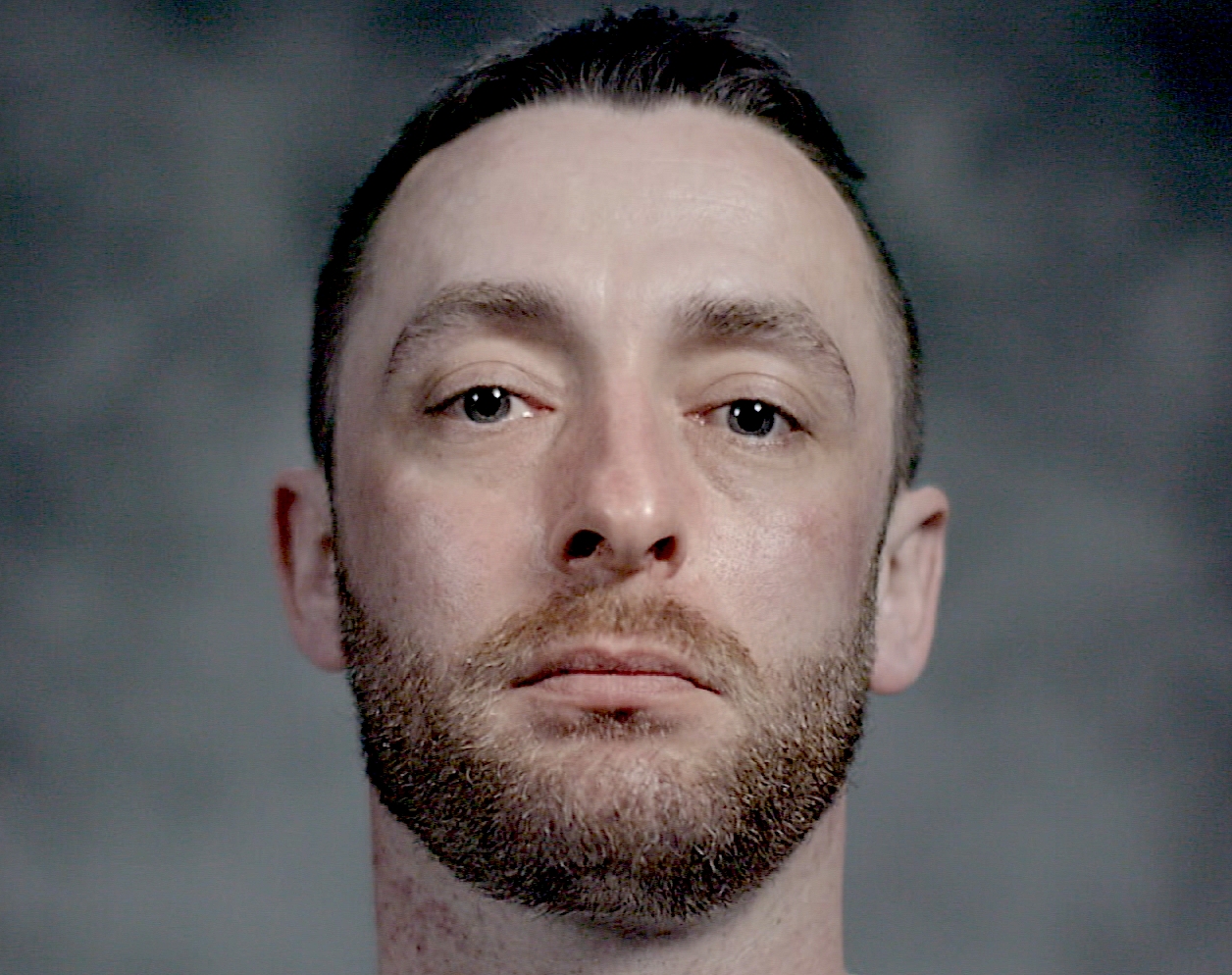Suicidal: In Our Own Words, Channel 5 review - why are so many men killing themselves? | reviews, news & interviews
Suicidal: In Our Own Words, Channel 5 review - why are so many men killing themselves?
Suicidal: In Our Own Words, Channel 5 review - why are so many men killing themselves?
Harrowing and heartbreaking documentary in which six male mental health patients open up

September 10 is World Suicide Prevention Day, and Channel 5 marked the occasion with this sobering documentary. Focusing on male suicide – incredibly, now the UK’s biggest killer of men under 45 – it studied six patients at the Riverside Mental Health Centre in Hillingdon, west London.
Director Rachel Harvie stood back and let her interviewees tell their stories, which served as both therapy and confessional. Charlie, a sad, mild-mannered boy of 18 covered in self-inflicted scars, has been diagnosed with ADHD, depression, social anxiety and “emotional disregulation”. Cut through the fancy shrink-speak, though, and his problems stemmed from being brutally bullied in his earlier years. He’s been yearning for oblivion ever since – “that’s the appeal – just silence”, as he put it.
Leo, reliant on a church support group in Acton for his survival, has tried to kill himself in numerous ways, including overdosing, slitting his own throat and jumping in a river. “Every day there’s no rest,” he reflected. “It’s like the devil wants me dead so bad.” Leo evidently suffers delusions and hears voices in his head urging him to kill himself, but other patients had more empirical explanations for their life-terminating urges. Ron (63) was terrified of the imminent death of his gravely ill partner, Jen, who’s in a hospice. “If she goes I go – she’s my life,” he sobbed. Nineteen-year-old Jack has been left emotionally shattered by the deaths of his parents and grandfather, and just couldn’t see a reason to keep on keeping on – “I feel defeated, I feel weak. Very lost.”
 All this made agonising viewing, and one wondered if it was wise to keep immersing oneself in so much misery. At least Stewart Hampton (pictured above), an army lance-corporal, refused to feel sorry for himself, even after deliberately crashing his car into a motorway barrier (he felt “a bit disappointed” on finding himself completely unscathed). He’s been caught out by the so-called “crisis of masculinity”. He used to let off steam by getting drunk and looking for a fight, but even the military don’t condone this sort of behaviour nowadays. “Old-fashioned manly men are going out of fashion,” he reckoned. They should have got Stewart together with Charlie, who was asked what he thought “being a man feels like”. “Being able to cope with things,” he replied.
All this made agonising viewing, and one wondered if it was wise to keep immersing oneself in so much misery. At least Stewart Hampton (pictured above), an army lance-corporal, refused to feel sorry for himself, even after deliberately crashing his car into a motorway barrier (he felt “a bit disappointed” on finding himself completely unscathed). He’s been caught out by the so-called “crisis of masculinity”. He used to let off steam by getting drunk and looking for a fight, but even the military don’t condone this sort of behaviour nowadays. “Old-fashioned manly men are going out of fashion,” he reckoned. They should have got Stewart together with Charlie, who was asked what he thought “being a man feels like”. “Being able to cope with things,” he replied.
Teaching their patients to cope is the objective at the Riverside Centre, but it’s a perpetual work in progress, with uncertain results. Harvie had done a skilful and empathetic job in getting her subjects to talk so freely, but since each case had a different story and individual reasons for wanting to die, we were none the wiser about why we’re in the midst of a suicide epidemic. A kinder, gentler world might help.
rating
Explore topics
Share this article
Add comment
The future of Arts Journalism
You can stop theartsdesk.com closing!
We urgently need financing to survive. Our fundraising drive has thus far raised £49,000 but we need to reach £100,000 or we will be forced to close. Please contribute here: https://gofund.me/c3f6033d
And if you can forward this information to anyone who might assist, we’d be grateful.

Subscribe to theartsdesk.com
Thank you for continuing to read our work on theartsdesk.com. For unlimited access to every article in its entirety, including our archive of more than 15,000 pieces, we're asking for £5 per month or £40 per year. We feel it's a very good deal, and hope you do too.
To take a subscription now simply click here.
And if you're looking for that extra gift for a friend or family member, why not treat them to a theartsdesk.com gift subscription?
more TV
 Black Rabbit, Netflix review - grime and punishment in New York City
Jude Law and Jason Bateman tread the thin line between love and hate
Black Rabbit, Netflix review - grime and punishment in New York City
Jude Law and Jason Bateman tread the thin line between love and hate
 The Hack, ITV review - plodding anatomy of twin UK scandals
Jack Thorne's skill can't disguise the bagginess of his double-headed material
The Hack, ITV review - plodding anatomy of twin UK scandals
Jack Thorne's skill can't disguise the bagginess of his double-headed material
 Slow Horses, Series 5, Apple TV+ review - terror, trauma and impeccable comic timing
Jackson Lamb's band of MI5 misfits continues to fascinate and amuse
Slow Horses, Series 5, Apple TV+ review - terror, trauma and impeccable comic timing
Jackson Lamb's band of MI5 misfits continues to fascinate and amuse
 Coldwater, ITV1 review - horror and black comedy in the Highlands
Superb cast lights up David Ireland's cunning thriller
Coldwater, ITV1 review - horror and black comedy in the Highlands
Superb cast lights up David Ireland's cunning thriller
 Blu-ray: The Sweeney - Series One
Influential and entertaining 1970s police drama, handsomely restored
Blu-ray: The Sweeney - Series One
Influential and entertaining 1970s police drama, handsomely restored
 I Fought the Law, ITVX review - how an 800-year-old law was challenged and changed
Sheridan Smith's raw performance dominates ITV's new docudrama about injustice
I Fought the Law, ITVX review - how an 800-year-old law was challenged and changed
Sheridan Smith's raw performance dominates ITV's new docudrama about injustice
 The Paper, Sky Max review - a spinoff of the US Office worth waiting 20 years for
Perfectly judged recycling of the original's key elements, with a star turn at its heart
The Paper, Sky Max review - a spinoff of the US Office worth waiting 20 years for
Perfectly judged recycling of the original's key elements, with a star turn at its heart
 The Guest, BBC One review - be careful what you wish for
A terrific Eve Myles stars in addictive Welsh mystery
The Guest, BBC One review - be careful what you wish for
A terrific Eve Myles stars in addictive Welsh mystery
 theartsdesk Q&A: Suranne Jones on 'Hostage', power pants and politics
The star and producer talks about taking on the role of Prime Minister, wearing high heels and living in the public eye
theartsdesk Q&A: Suranne Jones on 'Hostage', power pants and politics
The star and producer talks about taking on the role of Prime Minister, wearing high heels and living in the public eye
 King & Conqueror, BBC One review - not many kicks in 1066
Turgid medieval drama leaves viewers in the dark
King & Conqueror, BBC One review - not many kicks in 1066
Turgid medieval drama leaves viewers in the dark
 Hostage, Netflix review - entente not-too-cordiale
Suranne Jones and Julie Delpy cross swords in confused political drama
Hostage, Netflix review - entente not-too-cordiale
Suranne Jones and Julie Delpy cross swords in confused political drama
 In Flight, Channel 4 review - drugs, thugs and Bulgarian gangsters
Katherine Kelly's flight attendant is battling a sea of troubles
In Flight, Channel 4 review - drugs, thugs and Bulgarian gangsters
Katherine Kelly's flight attendant is battling a sea of troubles

Comments
This is a fantastic